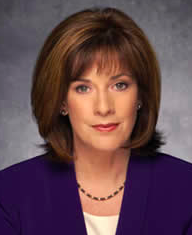 BY DIANE DIMOND
BY DIANE DIMOND
Sherry Johnson gave birth when she was 10 years old. When she turned 11, her parents, members of a conservative Pentecostal church, decided she should marry the 20-year-old man who had raped her. Their reasoning? Marriage would deflect a criminal case and help protect the reputation of the church. Amazingly, a clerk in Pinellas County, Florida, issued a marriage license (which noted Sherry’s birthdate), and the deed was done.
Johnson’s case occurred back in the 70s. But if you think child brides are a thing of the past in America, you would be wrong.
According to the nonprofit Unchained at Last, the practice continues to this day. And the children are frequently married off to older spouses with an age difference that constitutes sex between them as statutory rape. In what world is this OK?
Unchained at Last was founded by Fraidy Reiss, a woman who says her ultra-Orthodox Jewish family forced her into a marriage at age 19 to a violent man she despised. After a dozen years, Reiss found the strength to escape with her two daughters, earn a college degree, and become a working journalist and a licensed private investigator.
Reiss’s group spent the last year collecting marriage license data from 2000 to 2010, and what they found was shocking. In 38 states, more than 167,000 children, almost all of them girls, had been legally married.
Many states have a marriage license category labeled “14 and younger,” so it is not known precisely how young these brides and grooms might have been. Twelve-year-old girls were married in Alaska, Louisiana and South Carolina. In one 2006 New Jersey case, the group says, a 10-year-old boy was married to an 18-year-old woman. Surprisingly, more than half of all U.S. states have no firm minimum age for marriage.
In the Washington Post, Reiss concluded, “Based on the correlation we identified between state population and child marriage, we estimated that the total number of children wed in America between 2000 and 2010 was nearly 248,000.”
Nearly a quarter of a million minors allowed to marry! How, and why, is this allowed to happen?
In all but two states, the age of consent for marriage is 18. (It’s 17 in Nebraska. In Mississippi, it’s 17 for boys and 15 for girls.) But there are wide-ranging exceptions. Parents can give consent for their minor child. And there are states in which judicial consent is also required. In my opinion, too many parents urge (or demand) marriage, and too many judges give their permission under the misguided premise that if a child is pregnant, marriage is the best course of action. It clearly is not.
Two-thirds of marriages of underage girls end, according to one study. And the youngest spouse (again, usually the female) is often left in poverty with at least one child, an interrupted education, no work history, the inability to sign a lease or buy a car, and few options to make a successful life. Minors who seek protection in a domestic abuse shelter are often turned away for being underage. These young people lose at every turn.
Ironically, a U.S. State Department report published last year condemned countries that allow child marriage, calling it a human rights abuse that “produces devastating repercussions for a girl’s life, effectively ending her childhood” by forcing her “into adulthood and motherhood before she is physically and mentally mature.”
Reiss’s group would like to see a blanket ban on all under-18 marriages. It got close to that goal in New Jersey recently; such a bill had passed both houses of the legislature. However, Gov. Chris Christie vetoed the legislation, saying it “does not comport with the sensibilities and, in some cases, the religious customs, of the people of this state.”
Several states have, or will soon, consider such a ban. But many lawmakers are convinced it might unlawfully stifle religious freedom, and they cling to that idea that a baby must be born in wedlock. Religious groups and various cultural associations in which arranged marriages are the norm are lobbying hard against the idea.
To be fair, it’s not just parents forcing early marriage. There are plenty of minors convinced they are ready for holy matrimony, too. But when these unions fail, guess who picks up the financial burden. That’s right, you and me. Taxpayer-funded welfare programs — from food stamps to Medicaid to low-income housing costs — are often the only lifeline available.
Sherry Johnson looks back on her earlier years and declares, “It was a terrible life.” She was a child raising children — nine of them in all. She still wonders why the state didn’t handcuff her husband for raping her. Instead, it handcuffed her to a hopeless life.
She asks, “why allow someone to marry when they’re still so young?” That is a very good question.
Rockland resident Diane Dimond is a syndicated columnist, author, regular guest on TV news programs, and correspondent for Newsweek/Daily Beast. Visit her at www.DianeDimond.netor reach her via email Diane@DianeDimond.net

You must be logged in to post a comment Login